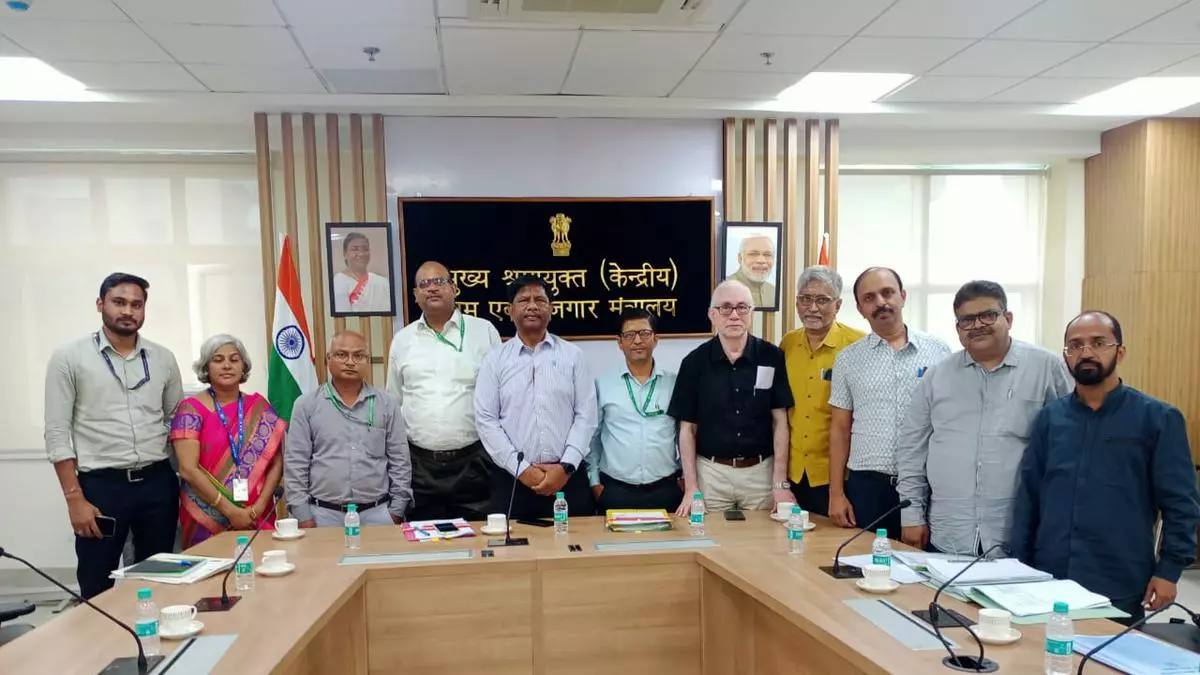Nabard employees, management ink supplementary wage agreement to ‘rectify anomaly’
to print + web
All India Nappard Employees Association (National Bank for Agriculture and Rural Development) (INAPIA) and Nappard management have signed a supplementary agreement to ‘correct anomalies’ in the eighth bilateral wage settlement signed on September 21, 2022.
The anomaly was in regard to the grading allowances allowed to workers, which “were not on par with the referral institution, RBI,” says Rana Mitra, General Secretary, Ainbia. Mitra said the decision contradicts the settlement memorandum signed by the two parties on February 2, 2022 business line which had flagged the problem in a report in September.
Anomalies of class allowances
Mitra said that the center approved the proposal to review the schedules and allowances of workers and officers as of November 1, 2017. During the clearing procedure, the Financial Services Department of the Ministry of Finance did not agree to the requirement for grade allowances. , which she proceeded to cut “by a large amount”. In protest, Ainbia launched a nationwide activism, declared a strike, and implicitly motioned before parliament during the monsoon session.
Chief Nappard intervenes
Then Nappard’s Chairman, KV Shaji stepped in, which led to the signing of the Supplementary Agreement at Nappard’s head office in Mumbai last Thursday. However, some claims, including Mercy Group/appointments, pension matters including modernization, and appointment of Group C staff to all positions pending settlement, still need to be decided.
Shah’s approach is welcomed
Meanwhile, Ainbia welcomed Minister of Home Affairs and Cooperation Amit Shah’s “approach” regarding the enhanced role of the Principal Bank for Agriculture and Cooperation. In his recent speech at Nappard Foundation Day in New Delhi, the minister said that Nappard’s mission, not a bank, can work with cooperatives to boost the rural economy in the next 25 years (Amrit Kal), when the country will complete 100 years of independence.
Big concerns
says Mitra, who has expressed two tearful needs (1) a better flow of low-cost funds from both the Center and the Reserve Bank as provided by the Nappard Act and the RBI and (2) exemption from the Nappard Act and the creation of a dedicated fund to reduce the interest burden on farmers through Refinancing to Co-operative Banks and RRB.
Einabya had conceptualized these and other proposals, including on the Climate Change Fund, nearly two decades ago, and included them in regulatory study reports submitted to the Nappard administration and the parliamentary committees on agriculture and the center.
Low cost money flow
“For the DFC, ensuring the flow of low-cost funds as well as adhering to the mandates proposed by Crafticard (Committee for Reviewing Institutional Credit Arrangements for Agriculture and Rural Development) is of paramount importance,” Mitra said. Ainbia will continue to engage stakeholders, including the Centre, the Nappard Administration and Parliament, on the vital need to stand by small and marginal farmers in times of crisis.
